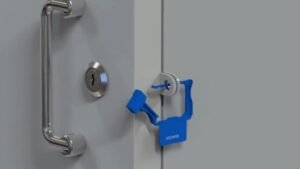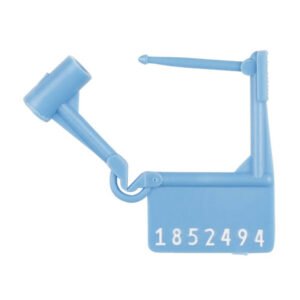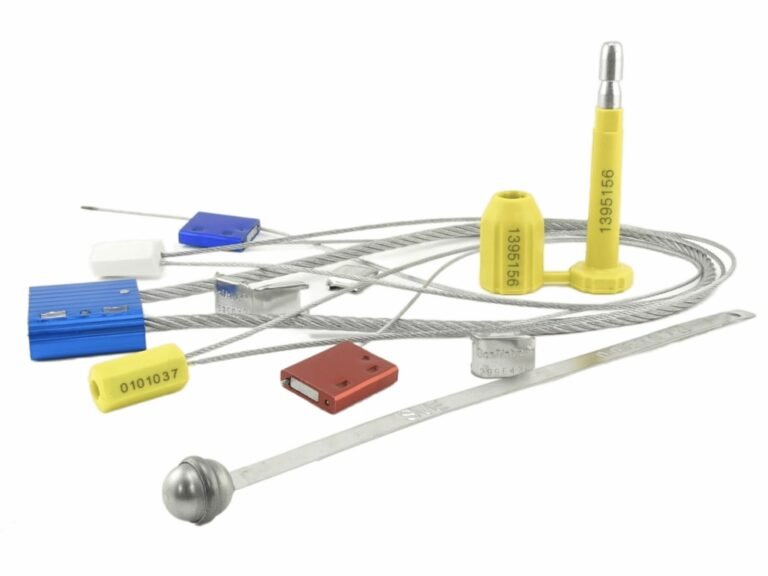
Padlock seals come in various types to prevent tampering and secure goods across industries. They combine the strength of a padlock with the convenience of a seal, offering a cost-effective way to enhance security.
ProtegoSeal specializes in designing and producing high-quality security seals to protect goods and prevent tampering. We provide reliable sealing solutions for businesses and logistics worldwide, earning a trusted reputation in the industry.
Let’s explore the different types of padlock seals, how to use them, and their key benefits.
What are the common types of padlock seals?
There are three main types of common padlock seals:
1. Plastic padlock seals
2. Metal padlock seals
3. Wire padlock seals
The specific differences between the above padlock seals are as follows:
| Feature | Plastic Padlock Seals | Metal Padlock Seals | Wire Padlock Seals |
|---|---|---|---|
| Material | High-strength plastic | Steel, aluminum, or other metals | Metal wire with PVC coating |
| Security Level | Low to Medium | High | Medium to High |
| Cost | Most affordable | Expensive | Moderate |
| Applications | Retail, logistics, utility meters | Banking, pharmaceuticals, high-value goods | Freight, postal services, medium-security needs |
| Tamper Resistance | Low | High | Medium to High |
| Durability | Moderate | High | High |
| Customization | High (logos, colors, barcodes) | Limited (mainly for serial numbers) | Limited (usually plain, for tracking) |
How to open and remove the padlock seal?

Step One: Identify the Type of Padlock Seal
Before removing the seal, determine whether it is plastic, metal, or wire, as each type requires a different removal method.
Step Two: Use the Appropriate Tool
- Plastic Padlock Seals: Can be cut using scissors or standard cutting pliers.
- Metal Padlock Seals: Require bolt cutters or a heavy-duty cutter to break the metal lock.
- Wire Padlock Seals: Can be removed with wire cutters or specialized seal removal tools.
Step Three: Record the Seal Number
If the padlock seal has a unique serial number, record it before breaking the seal for tracking and security verification.

Step Four: Cut and Remove the Seal
- Position the cutting tool at the weakest part of the seal (usually the locking mechanism).
- Apply firm pressure until the seal breaks.
- Carefully remove the broken pieces to avoid injury.
Step Five: Dispose of the Seal Properly
After removal, dispose of the broken seal safely, especially if it contains sensitive information like serial numbers or company branding.
By following these steps, you can efficiently remove a padlock seal while ensuring security protocols are maintained.
Why Choose Padlock Seals and Their Unique Advantages Over Other Seals

Padlock seals stand out from other security seals due to their ease of use, lightweight design, clear identification, and cost-effectiveness for short-term security needs. While bolt seals, cable seals, and metal seals each serve specific purposes, padlock seals offer unique benefits in various industries.
1. Easy to Use: Locks Like a Padlock, No Tools Required
Padlock seals offer a low-cost alternative to high-security bolt seals, making them ideal for short-distance transportation and temporary security applications. Their affordability allows businesses to enhance security without significant investment. For example, airports use padlock seals to secure duty-free trolleys, preventing unauthorized access until the next scheduled inspection.
2. Lightweight & Ideal for Small-Scale Security
Compared to cable seals, which are designed for securing large cargo and heavy shipments, padlock seals are lightweight and perfect for small-scale security needs. Their compact design makes them ideal for securing cash boxes, utility meters, and medicine cabinets. For example, banks use padlock seals to secure ATM cash cassettes, ensuring that only authorized personnel can access them.
3. Clear Identification for Quick Checks & Bulk Management
Unlike pull-tight plastic seals, which may stretch or distort, padlock seals remain visibly intact with a fixed serial number. This makes security checks faster and ensures accurate tracking in bulk operations. For example, pharmaceutical companies use padlock seals to secure vaccine storage boxes. Staff log the serial numbers daily to ensure the boxes remain sealed and tamper-free.
4. Cost-Effective for Short-Term Security Needs
Padlock seals offer a low-cost alternative to high-security bolt seals, making them ideal for short-distance transportation and temporary security applications. Their affordability allows businesses to enhance security without significant investment. or example, airports use padlock seals to secure duty-free trolleys, preventing unauthorized access until the next scheduled inspection.
Guide Consultation
If anything in this guide leaves you in doubt, ProtegoSeal is here to help. Whether you have questions about choosing the best type, using it, ensuring tamper resistance, or customizing a solution for your industry, our team is here to provide expert guidance tailored to your needs.
Contact us today for a consultation and let’s find the perfect security solution for you!

